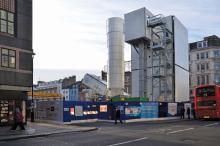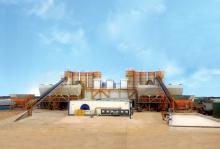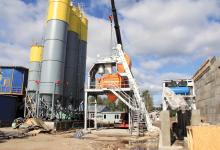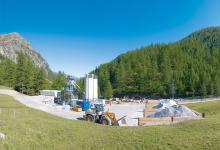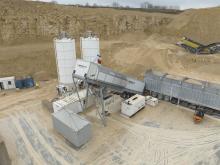Maintaining fixed concrete plants can be expensive, particularly when customers are spread over a wide geographical area but volumetric trucks are helping to overcome this issue
The economic downturn has hit all parts of the construction industry and the ready mixed concrete market is no exception. Although the prospects are now improving, many companies used the recession as an opportunity to close ageing concrete plants or ones where customers were too widely spread and rationalise their assets.
But surely this leaves gaps in the ready mixed concrete supply network away from major urban areas that will be tricky to refill quickly as demand picks up? It seems that the industry has taken a leaf from the revolution that has changed the face of the crushing and screening market and looking increasingly for a mobile solution in the form of volumetric trucks.
Taking a look at the UK market underlines how the change has occurred. A recent report from BDS marketing - Estimated market shares of ready mixed concrete companies in Great Britain - showed that during the peak of the downturn in 2009 volumes of batched concrete fell by 30% in 2009 and nearly 60 plants were closed during the year and 18 smaller companies ceased production.
These kind of rapid changes have an impact on the dynamics of the sector and the report suggests that ready mixed concrete producers have shifted to towards use of volumetric trucks to meet demand rather than conventional fixed plants. The report suggests that around 200 companies operating 500 volumetric trucks in the UK now serve the market meeting 10% of the demand.
Construction equipment producers have responded to the call for this solution with development of new trucks to serve this emerging market.
Concrete equipment specialist
With a 60m3 per hour capacity and computer control, Ultranazz's Hydromix is firmly aimed at taking market share from conventional fixed concrete plants.
As with the mobile revolution in the crushing and screening market, mobile can be used to describe machines that can be rolled on and off site within hours through to units that may be better described as moveable or semi-mobile.
Containerised semi-mobile concrete batching plants have been available for some time and are a more accepted solution for larger projects.
Such solutions can also be very useful for delivering material to remote project sites as UK-based contractor
Blackwell's work included casting the 360m3 base in-situ for each of the 52 turbines. According to the contractor the Rapidbatch plant allowed consistently high quality concrete to be produced to match the construction schedule at a rate of up to 120m3 per hour.
The potential for greater control on these semi-mobile units is part of the key to their success. The focus of recent development has been on speeding up the installation time and Turkey-based Elkon has been combining this with increasing capacity and providing weather protection to ensure its newest model - the Elko-60 Quick Master - can be used in any climate.
While the widening array of mobile options is helping to improve the options when it comes to ready mixed concrete, like the crushing and screening market, it is unlikely that this new generation of technology will ever completely replace larger fixed plants. What is clear though is that opting for a mobile solution does not mean that there have to be compromises in terms of quantity or quality.

